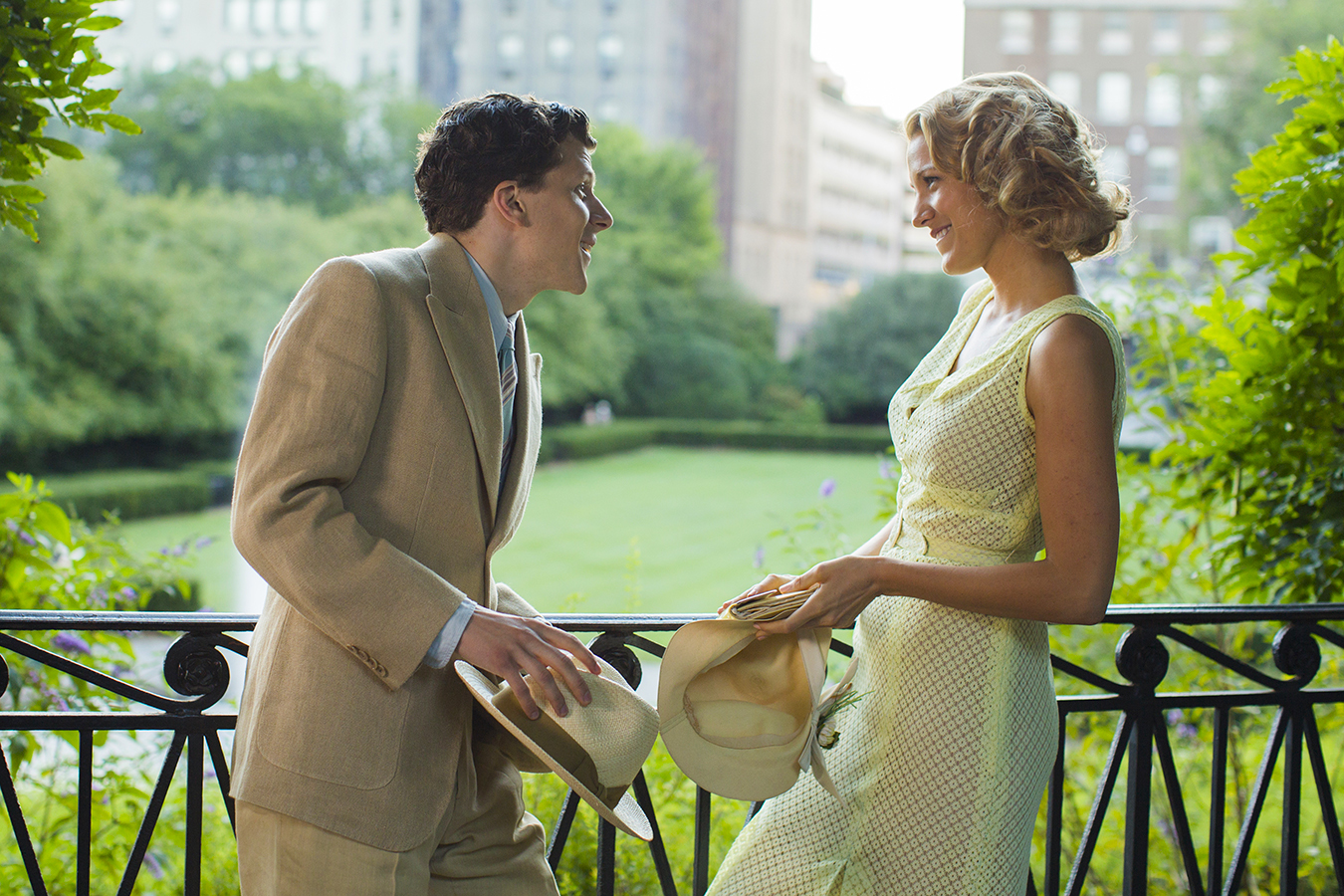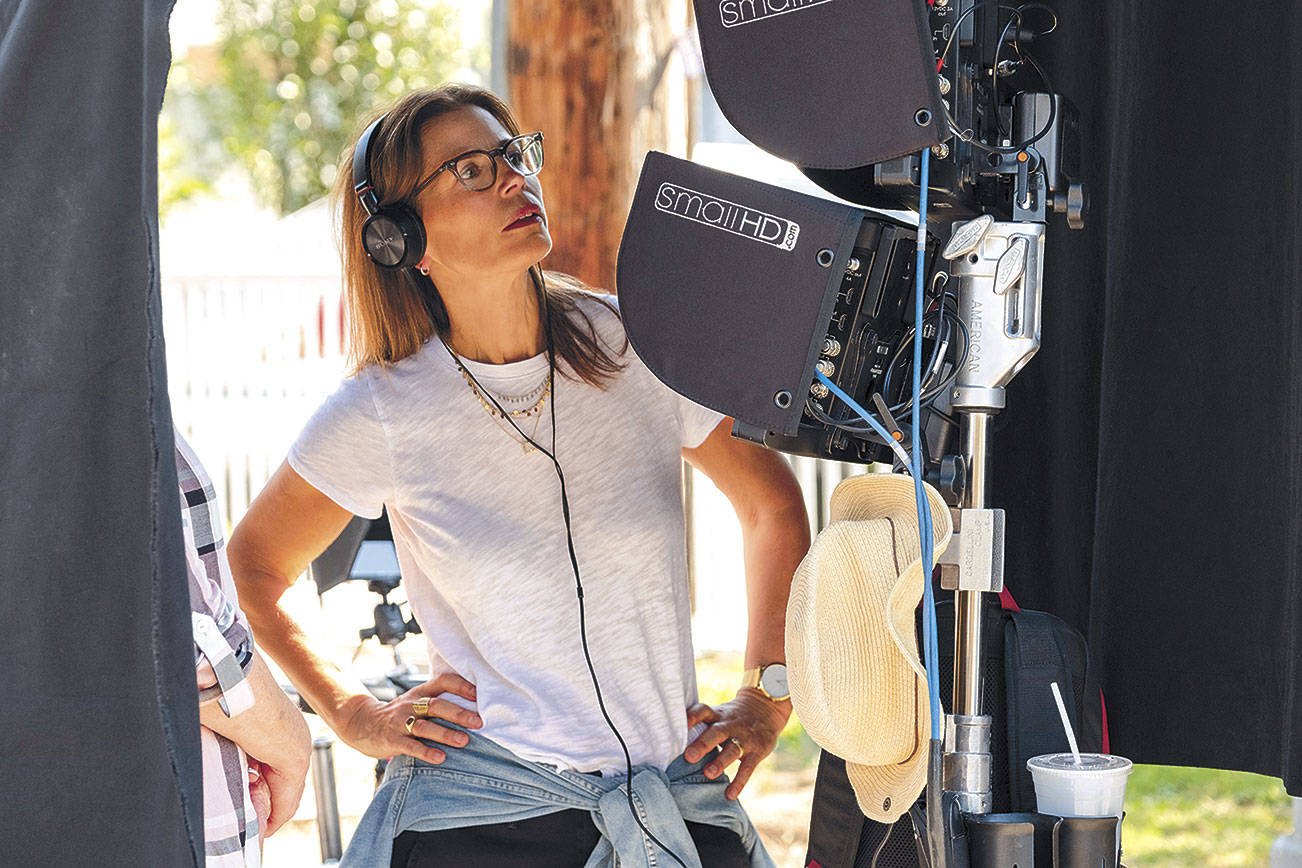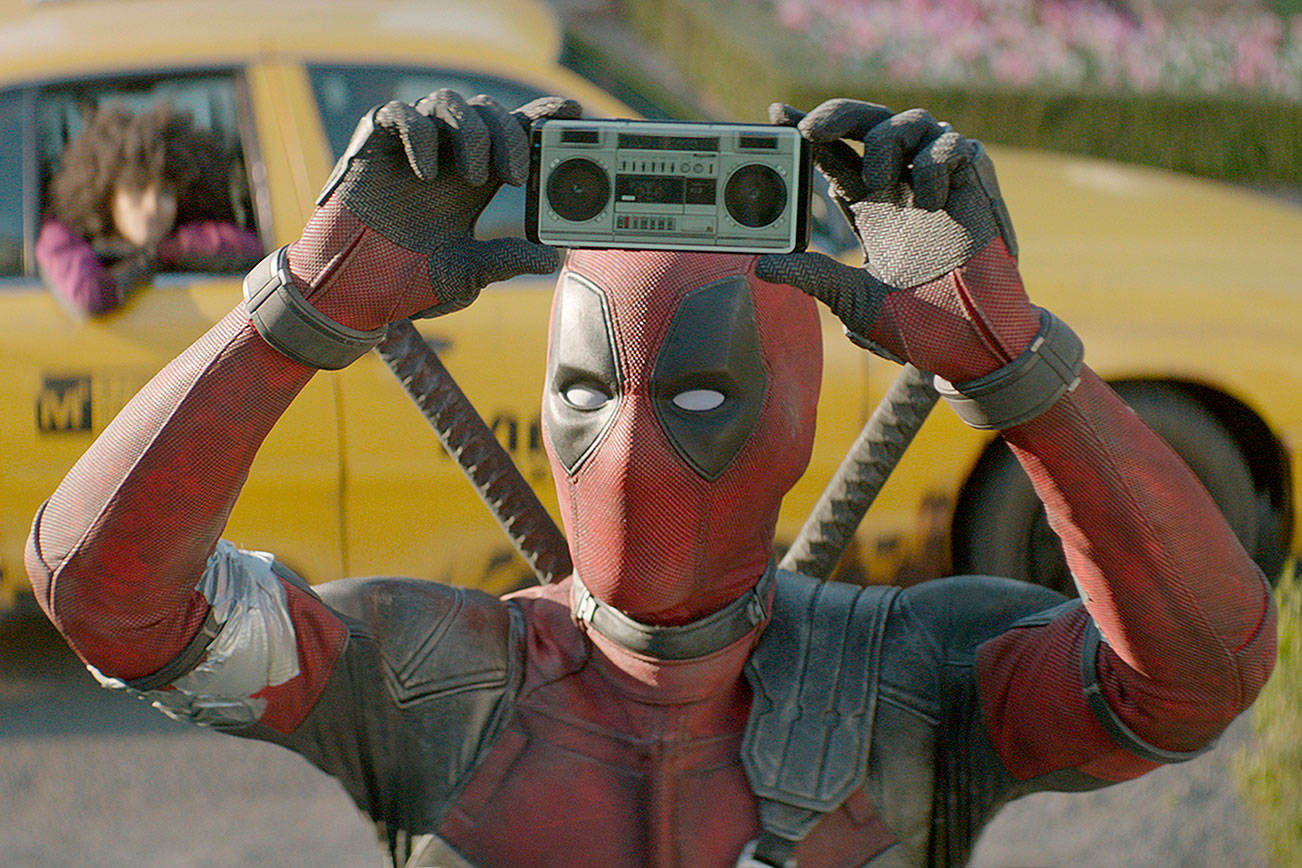In Annie Hall, Los Angeles is “a city where the only cultural advantage is being able to make a right turn on a red light.” That was 40 years and 40 Woody Allen movies ago, and the humor that worked back then—L.A.’s mind-set summed up thus: “I’m going to have the alfalfa sprouts and plate of mashed yeast”—has mellowed with time. For Café Society, Allen remains skeptical about La-La Land, but this portrait of a New York lad trying his luck in 1930s Hollywood is sticky with nostalgia: wrapped in lush costuming, honeyed by golden California light, and scored to the vintage toe-tappers that Allen continues to love. Satirical arrows are dutifully aimed, but the overall gorgeousness makes the target a soft one.
The lad is Bobby Dorfman (Jesse Eisenberg), whose Uncle Phil (Steve Carell in a good turn) has become a successful movie agent. Bobby gets stuck with menial jobs, but he’s able to observe chic pool parties and meet movers and shakers. He has eyes for Phil’s secretary, Veronica (Kristen Stewart), but she’s involved with a much more powerful man. Allen melds this nicely bittersweet situation to Bobby’s eventual return home to New York, where his gangster brother Ben (Corey Stoll, the amusing Hemingway in Allen’s Midnight in Paris) is building an empire. Which is worse—the mendacity of Hollywood or the bloodletting of the mob?
That might be a fertile question, but Allen is more interested in the surface glamour of both realms, and the very old-fashioned jokes that occasionally puncture that glamour. Meanwhile, Bobby is now brash and practical, caught up in his brother’s nightclub business. His East Coast romance takes the form of another Veronica (Blake Lively), and here is where Allen has a suitable subject for a much better film than Café Society turns out to be. Bobby’s wistful attachment to the first Veronica overshadows his relationship with the second, a conflict that works even on the level of casting. Lively (currently dodging sharks in The Shallows) is a capable actress with some real movie-star allure, but she tends to fall out of memory when set next to Kristen Stewart’s darker, pensive presence.
Not that Allen develops this storyline. After its enjoyable start, Café Society dribbles away into a series of unfinished scenes and half-hearted exchanges. It comes to life mostly when gathered around the Bronx kitchen table of Bobby’s parents (Jeannie Berlin and Ken Stott), where Allen’s comedy can get back to its Jewish roots. Those scenes have rhythm—and what the rest of Café Society lacks most, a pulse. Despite the ravishing cinematography by the great Vittorio Storaro, despite the dedication of the actors, this film finally founders on its inability to find a groove. It’s especially disappointing that in a movie set in the 1930s—the decade in which Hollywood comedies perfected a fast-moving style timed to a rat-a-tat metronome—Allen can’t find a way to goose along the proceedings. He still shoots most of his scenes in long-running master shots, which means if the actors don’t click, there’s no way to cut the sequence into a rhythm. The movie goes slack when it should set off sparks.
Allen has maintained a remarkable career, through success, failure, and scandal. And although some of the gags here suggest Allen has sharpened his pencil lately, I’ve come to dread his comedies while relishing his kvetching about society (Blue Jasmine) and his forays into magic realism (To Rome With Love, Midnight in Paris). His retreat into fantasy might yet produce a latter-day masterpiece (the celluloid daydreams of an octogenarian artist could be very fruitful, especially if Allen follows the example of his idols like Fellini or Buñuel). But the retreat means his work almost certainly won’t be relevant again, not in the way that Annie Hall or Manhattan caught their moment.
One imagines that is probably the way he prefers it. Theaters TBA. Rated PG-13. Opens July 22.








